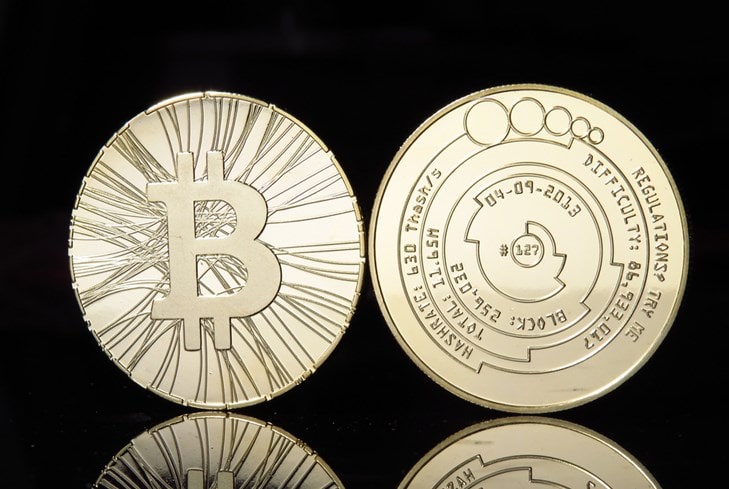How to Avoid 7 (Too) Common Bitcoin Trading Scams
In 2009, Bitcoin was created and released to the world. Since then, it has gone through an intense growth phase that has brought it to the point where it is now: a market capitalization of $297 billion. With this fast rise and the many developments that have occurred since then, there have been some negative events with Bitcoin.
Types of Bitcoin Scams, and How to Avoid Them
There are two things that help enable scams in the Bitcoin world: the lack of regulatory oversight, and the number of unsophisticated investors jumping into space. The scams are all easily avoidable with the proper research and understanding of how the cryptocurrency works.
Below we have outlined 7 of the most common scams that occur in the Bitcoin-world. No particular order.
1. Phishing
This is a common scam all over the Internet and tends to occur when a hacker sends an email that brings a user to a site they think is secure and related to their account, but is really compromised. Once on this website, you enter your account information and then they can do whatever they want with your money. This is the simplest way for you to compromise your online trading or exchange account. The best way to protect against it is by never opening links from emails or untrustworthy sources.
Similar to the con-men you have seen in movies in the past, there are people who use what little information they can glean about you to convince you to give them your account information. The only way to avoid this is to never give out your information to someone you can’t guarantee is secure.
2. Hacking
The exchanges most people buy Bitcoin through often have their own wallet services available. There are numerous cases of these exchanges being hacked and the Bitcoin in customers’ wallets being stolen. Knowing this, you should make sure to move your cryptocurrency to a more secure wallet as soon as possible. It is also known that hackers are searching social network for people who have purchased or are looking to purchase cryptocurrencies. Once they know this, they’ll monitor these users and try hacking their wallet. This is a very good reason to keep a lower profile on social networks these days!
3. Bucket Shops
Some websites are set up to be like the bucket shops. Their business model is built on offering you bitcoin trading, getting your number, and harassing you over the phone until you deposit money. Once you do the deposit, your money will disappear in a blink of an eye. This type of scam started in the binary options, CFD, and forex world but has now spread to the cryptocurrency trading community. The best way to avoid this is to trade only on trusted and reputable platforms.
4. Physical Robberies
There are Bitcoin trading services like Localcoin that allow users to set up purchases in person. It is very possible to get robbed in this situation just by not doing it in a public enough place, or not verifying the trade until it is too late. The most basic tip here is to look for someone with a more public profile so you can easily verify if they are legit or not. After that, consider going with a friend and keeping things very public.

5. Exchanges with Large Spread
Some trading platforms will give an unusually large spread in order to collect more money when they buy and sell coins. There will always be a difference between the bid and ask prices of Bitcoin, but if it is unusually larger than on other exchanges, they are likely ripping you off. This usually occurs on smaller exchanges and there is a grey area between a scam and a poorly run exchange, but Bitfinex has had this issue in the past.
6. Delayed Withdrawals or Deposits
When users make deposits or withdrawals of fiat currency into an exchange, there is always going to be a waiting period, but when it starts to take too long, it is possible the money is being employed in other uses. This is a rare occurrence, but companies can make a lot of money by using the “float” money for their own purposes. The lesson here is to only buy and sell on the top exchanges.
7.ICO’s and Other Coins
Bitcoin may be the most well-known cryptocurrency, but there are lots of other companies building products using the same type of blockchain technology. Some of these are completely fraudulent or contain some element of a pump n’ dump scheme in them. Beware of these and make sure you do your due diligence on these high-risk investments. The top thing you should look out for here is how the coin is managed post-ICO. Is it aggressively marketed without any real technical innovation? Is the supply artificially limited? Is there a founders’ reward? All of these are notable signs of issues.

The State of Regulation in the Bitcoin World
Bitcoin is not yet well-regulated, and that is a way there has been such a high incidence of scams. In a world where there are attorney-general’s offices investigating the slightest possibility of insider trading, those looking for an illicit edge need to move to the cryptocurrency trading world.

There are no countries who currently have comprehensive regulation around the management and spending of Bitcoin. In the U.S., there have been minor pronouncements in terms of the tax-status of cryptocurrencies, but there is no regulatory body for exchanges and trading platforms at the moment. Many other countries are in similar situations.
Bottom Line
The most important thing to remember after reading all of this is that Bitcoin itself is completely safe. It has never been hacked and becomes less likely to get hacked with every day that passes. By taking note of the scams above and watching out from them, you can protect your money and earn a lot as Bitcoin continues to rise.